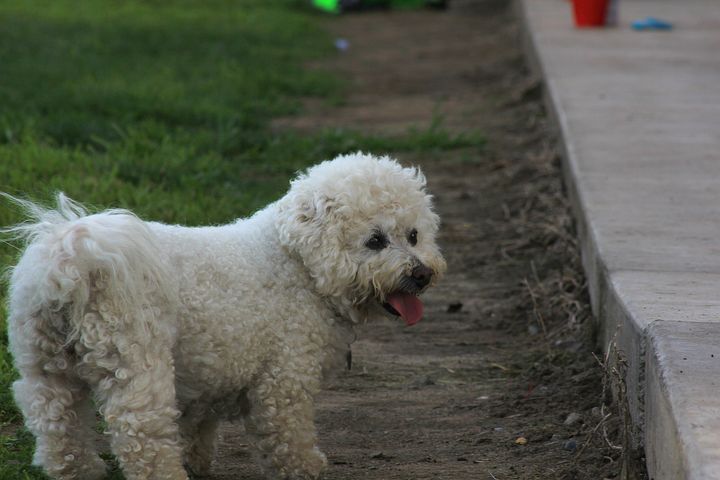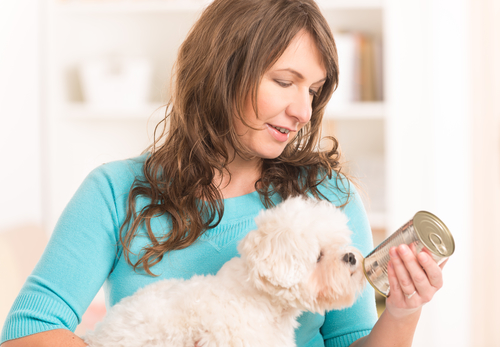Dog hearing loss in older dogs is sometimes hard to detect. Unfortunately many owners initially think that their dog is just ignoring them and not responding to commands.
Senior dogs often lose their hearing gradually, so it can be tricky to figure out that your dog is going deaf. Most often a dog that is becoming deaf, will start to be less aware of his surroundings and will not respond to his owner’s call.
How to Tell if Your Dog is Deaf
Dogs can lose hearing in one or both ears. That makes it even tougher to know if your dog is suffering hearing loss. For example, your dog may respond to you if you are on her left side, but not if you are on her right side. That’s true with people, too.

So, if you suspect that your dog is losing her hearing, you are going to need to do some detective work. You will need to observe her closely and try to interpret her behavior.
- First of all, separate your dog from your other dogs. If you try to get her to respond with others around, your dog will simply observe what the other dogs do and follow suit.
- When your dog is sleeping, speak to her to awaken her. If she doesn’t respond, she may not have heard you.
- Speak to your dog when she is not facing you. Dogs, like people, can see your lips move and know that you are speaking. If your dog does not react when she can’t see you, she may not hear you.
- If your dog does not alert you when the mailman comes or the doorbell rings, suspect a hearing problem—if he used to bark to alert you.
- When hearing is intact, a dog is very responsive and knows the direction of a sound. Does your dog act confused about where a sound is coming from?
- Watch to see if your dog acts confused when you speak to him. If so, he may not hear you.
- Lastly, watch your dog’s ears. Do they move when you speak to him? Dogs move their ears when they are listening.
What Causes Dog Hearing Loss?
Dog hearing loss can be caused by ear infections, injury, loud noises or aging, but the most common cause of dog deafness is genetics or heredity.
Hereditary Deafness
Interestingly, genetic deafness is more common in dogs with large amounts of white hair, like Bichon Frises.
Some dog breeds are more likely to have deaf puppies than others. These include: Dalmatians, Australian Heelers, Catahoulas, English Setters, Australian Shepherds, Boston Terriers, West Highland White Terriers, Great Danes and Boxers.
Deafness in Aging Dogs
For older dogs who have been able to hear, the most common cause of deafness is nerve deafness. Dogs can also suffer hearing loss because of:
- Ear infections
- Trauma or injury to the ear
- Loud noises like gunfire or concerts – can destroy nerve cells
- Medications that are toxic to the ear – like aminoglycoside antibiotics or even aspirin
- Cancer or tumors in the ear or the brain stem
- Degeneration of the cochlea in senior dogs
Prevent Dog Hearing Loss
The good news is that you can prevent some types of hearing loss in dogs.
- Dog ear infections – Ear infections are common in dogs. If your dog has a history of ear infections, you should be especially diligent about cleaning his ears and inspecting them for problems. Most infections are caused by bacteria or yeasts.
- Dog hearing protection – If your dog will be exposed to loud noises routinely, consider using hearing protection like Mutt Muffs. Just like people, dogs can become hard of hearing after exposure to noises like gunfire or loud concerts.
Keeping Your Deaf Dog Safe
When your dog can’t hear, he is more prone to accidents and danger. But there are things that you can do to keep him safe and some deafness can be treated.
Hand signals
Teach your dog hand signals. If your dog’s sight is intact, she can learn to respond to your hand signals. Older dogs can still learn, so don’t give up on your senior.
Harness that says your dog is deaf
If you know that your dog is deaf, you can have him wear a harness that warns other people that he can’t hear. When people can see that your dog cannot hear, they will be less likely to run up to him and startle him.
Always walk your dog on a leash
A deaf dog will still get excited about a squirrel or another dog and will run to greet them. Because he won’t hear your command to stop or come, he could run in front of a moving car or into another dangerous situation.
Don’t leave your dog outside unattended
Your dog no longer has natural defenses, alerted by hearing the noises of predators or enemies. If you live in the country, your dog could be attacked by a wild animal that she does not hear approaching. Or your dog might simply wander away and get lost. She would not hear you calling her to Come.
Vibrating collar
While your dog can’t hear you, she can still feel vibrations. Vibrating collars, often used in training hunting dogs, can also help you work with your deaf dog. The collars work with a remote control.
Use the collar to get your dog’s attention. When she looks at you, give her a thumb’s up signal and a big treat. If your dog does well with a vibration collar, you might try using it when you go to the beach or park and she is off leash.
This is a good tool to use if you have already taught your dog to respond to your hand signals. It doesn’t do any good if your dog has no clue what you want her to do, though.
Vibration
Vibration is a way to get your dog’s attention indoors. Especially if your dog does not respond when you speak to her, try clapping your hands, hitting the side of a chair or stomping on the floor.
Is Dog Deafness Treatable?
Some types of hearing loss can be treated, while others cannot. Nerve deafness, seen in aging dogs, is a form of deafness that has no cure or treatment.
However, some forms of deafness are treatable.
- Bacterial infections of the middle and inner ear – usually respond to antibiotic treatment.
- Deafness due to intense noise or injury – your dog may recover some or all of his hearing.
- Medications that cause deafness – recovery is rare.
- Surgery – works for some cases, but surgery is very expensive.
Last, there are now hearing aids available that will work in some cases. You will need to work with your vet to determine if anything can be done to help your deaf dog.






Leave a Reply